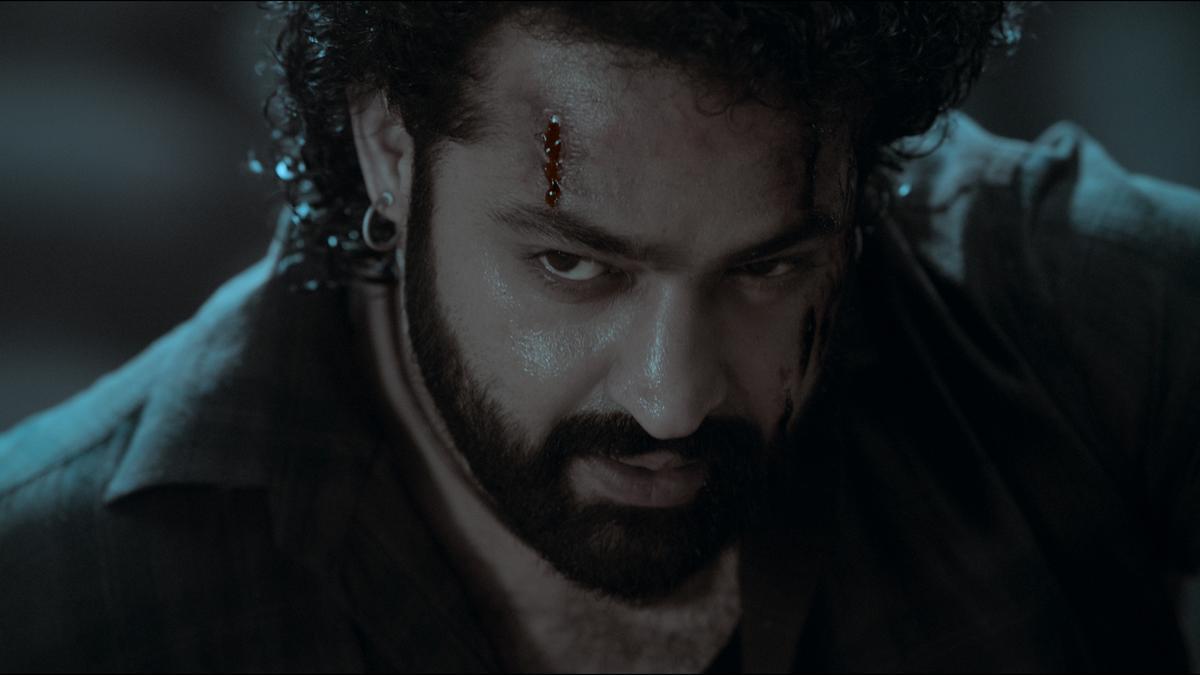
Nine years after SS Rajamouli’s groundbreaking film “Baahubali – The Beginning” left audiences on tenterhooks with the cliffhanger question, “Why did Kattappa kill Baahubali?”, a surge of ambitious films with room for sequels have emerged in the Indian cinematic landscape. This trend is a double-edged sword. Filmmakers now have more scope for intricate character sketching and world-building, but they often fall into the trap of overstretching narratives. A few critical questions linger unanswered, with the expectation that audiences will wait eagerly for a sequel. Koratala Siva’s latest venture, the Telugu film “Devara,” starring NTR, Saif Ali Khan, and Janhvi Kapoor, joins this list. Even though the movie boasts awe-inspiring sequences and a lively music score by Anirudh Ravichander, it leaves one pondering the necessity of a sequel.
The term “Devara” refers to male gods revered among coastal communities. NTR slips into the role of Devara, a mysterious figure inhabiting a fictional coastal area near the mountains. The film’s story kicks off in 1996, with India preparing to host the Cricket World Cup, and subsequently flips back in time to reveal the legend of Devara, who ostensibly rules over the seas. Koratala Siva wastes no time as a police officer (portrayed by Ajay) witnesses something shocking underwater, setting the stage for a village elder, Singappa (Prakash Raj), to unravel Devara’s tale.
We are drawn into the seaside territory where four clans co-exist, learning about the “erra samudram” (red sea). The narrative delves into human behavior, exploring themes of courage and fear. Unlike traditional stories where a village relies on a savior amidst oppression, “Devara” examines what people can achieve in the absence of fear. When Devara attempts to distinguish between the courage needed to live and the brute courage to kill, his ethical perspective is lost on many around him, including Bhaira (played by Saif Ali Khan).
One particular sequence set aboard a ship brimming with containers demonstrates the stealthy operations led by Devara and Bhaira. Even as Devara acknowledges his imperfections, he remains unaware of the larger consequences of his covert activities until much later. In a revealing moment, he tells his young son Vara (NTR in a dual role as the adult son) that unlike their ancestors who fought valiantly for freedom, he is insignificant. Devara’s moral stance serves as a catalyst for the growing rift within the four clans.
The film stops short of explaining how Devara and Bhaira became allies despite belonging to different clans but subtly showcases the divergence in their moral compasses. Supporting characters such as those played by Kalaiarasan and Tom Shine Chacko further intensify the schism between Bhaira and Devara. A meticulously staged Ayudha pooja sequence highlights the importance of the festival and the traditional weapons of these clans.
. The Telugu title is derived from the assembling of different shaped weapons, with a fish-shaped knife fittingly representing the coastal communities.
Several scenes, including the container episode and Ayudha pooja festivities, resonate as the story unfolds, creating continuity rather than standalone moments. Even minor scenes, such as Vara speaking nonchalantly about hair dye or Devara and Vara sitting on a stone hedge, have significant payoffs later. Although some plot twists are predictable, they enrich the narrative.
For over an hour, the film captivates viewers with the intricate world of Devara and its complexities. However, the later sections trade intensity for a rather banal romance track between Vara and Thangam (Janhvi Kapoor), coupled with Bhaira’s repetitive brooding, which gradually becomes tedious. The film winds up with a Baahubali-esque cliffhanger, lacking the needed impact and feeling incomplete.
The technical crew stands out when the script falters. Rathnavelu’s cinematography masterfully contrasts night scenes by the black-blue sea with the warm, rustic glow of oil lamps and bonfires in the village. Sabu Cyril’s production design brings an element of both beauty and mystery to the coastal region. The music by Anirudh Ravichander, which ranges from rock-inspired tunes to traditional beats, injects much-needed energy into the narrative.
However, the strong male-driven storyline sidelines other characters, such as Zarina Wahab, who portrays a mother witnessing countless deaths, and another woman envisioning education as her son’s escape. Some supporting actors like Prakash Raj and Srikanth manage to leave a mark, while Murali Sharma, Kalaiarasan, and Tom Shine Chacko are overshadowed. Bhaira’s character could have been explored more deeply; Saif Ali Khan’s performance is restricted to brooding. Janhvi Kapoor’s character is disappointingly underwritten.
In essence, NTR’s portrayal of Devara, set against a seaside backdrop, can be seen as an extension of his character Bheem in “RRR,” who symbolizes water versus Ram’s (Ram Charan) fire. NTR excels as Devara, succinctly depicting his moral dilemmas. As Vara, he attempts to elevate a lacking character through his performance.
“Devara: Part 1” is compelling yet wearisome. If it had been a standalone film, it might have delivered a more fulfilling experience.
“Devara: Part 1” is now playing in theatres.
Published – September 27, 2024, 02:40 pm IST
Telangana / Hyderabad / Telugu cinema / The Hindu Cinema Plus / reviews










